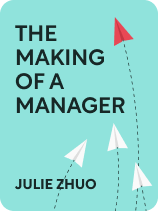

This article is an excerpt from the Shortform book guide to "The Making of a Manager" by Julie Zhuo. Shortform has the world's best summaries and analyses of books you should be reading.
Like this article? Sign up for a free trial here .
What is the best way to evaluate interview candidates? How should you decide which candidate to select?
It can be hard to decide who to hire if every candidate is qualified. Julie Zhuo’s advice in The Making of a Manager can make it easier to make this decision through careful evaluation.
Read more to learn how to evaluate interview candidates.
Five Steps to Evaluate and Select Candidates
After you’ve interviewed candidates, how do you decide who to hire? Zhuo suggests you take these steps on how to evaluate interview candidates.
Step #1: Review work they’ve done in the past. Evaluate a few projects they’ve completed that are similar to the work they’ll be expected to do at your company. According to Zhuo, this will give you a clear sense of their skills and ability to problem solve. It’ll also help you forecast how they’ll perform in the future.
Step #2: Ask trusted peers for input. Zhuo says you likely won’t get useful input from references a candidate furnishes. Instead, seek input from colleagues and peers in your professional network who’ll give you an honest assessment of candidates.
Step #3: Go with candidates who excite you. Even if a candidate has the needed skills and qualities, don’t choose them just because they could fit. Zhuo says to always give preference to candidates who spark enthusiasm in at least one interviewer. Candidates are more likely to add high value to your team when they stand out as unique.
Step #4: Prioritize diverse candidates. Hire candidates who have varied work and life experiences and who represent diverse races, genders, cultural backgrounds, and sexual orientations. Zhuo says diverse teams generate more creative ideas, solve problems more effectively, and produce superior outcomes.
Step #5: Choose people who have the potential to contribute beyond their designated role. Prepare for future growth by hiring candidates who are equipped to deliver more than you need immediately. For example, even if a frontline sales role doesn’t include supervisory responsibilities now, Zhuo says it’s wise to give an edge to candidates who have relevant sales experience and supervising experience. They’ll be able to step into bigger roles as your team grows.
Pros and Cons of Hiring Overqualified Candidates
Although Zhuo highlights one significant benefit to hiring a candidate whose qualifications exceed job requirements, she doesn’t elaborate on the many other advantages—or, the many drawbacks—of this approach. Here are some key pros and cons based on experts’ insights:
Pros:
- Increased productivity—When people have extensive experience above and beyond their current role, their advanced skill set can help increase your company’s performance levels.
- Reduced training time and costs—Overqualified candidates are usually equipped with the knowledge required for performing their basic job duties, which requires you to expend fewer resources training them.
- Valuable input and ideas—Candidates who have worked in more advanced roles are often able to identify ways to improve efficiency.
Cons:
- Risk of underperformance—When someone feels overqualified for a position, they may become complacent and bored if you don’t challenge them or nurture their ongoing development.
- Alienating other employees—Other team members may perceive this hire as reducing their opportunities for advancement.
- Higher risk of turnover—If an overqualified candidate takes a position out of desperation or mere curiosity, they may leave as soon as another opportunity comes along that better fits their skill level.
Hiring an overqualified candidate may indeed be the best option for your company, as Zhuo suggests—but, be sure to weigh your company’s needs against the associated risks.

———End of Preview———
Like what you just read? Read the rest of the world's best book summary and analysis of Julie Zhuo's "The Making of a Manager" at Shortform .
Here's what you'll find in our full The Making of a Manager summary :
- How to build a team and motivate them to work together
- How to run productive meetings
- Tips on how to interview and hire the right employees






